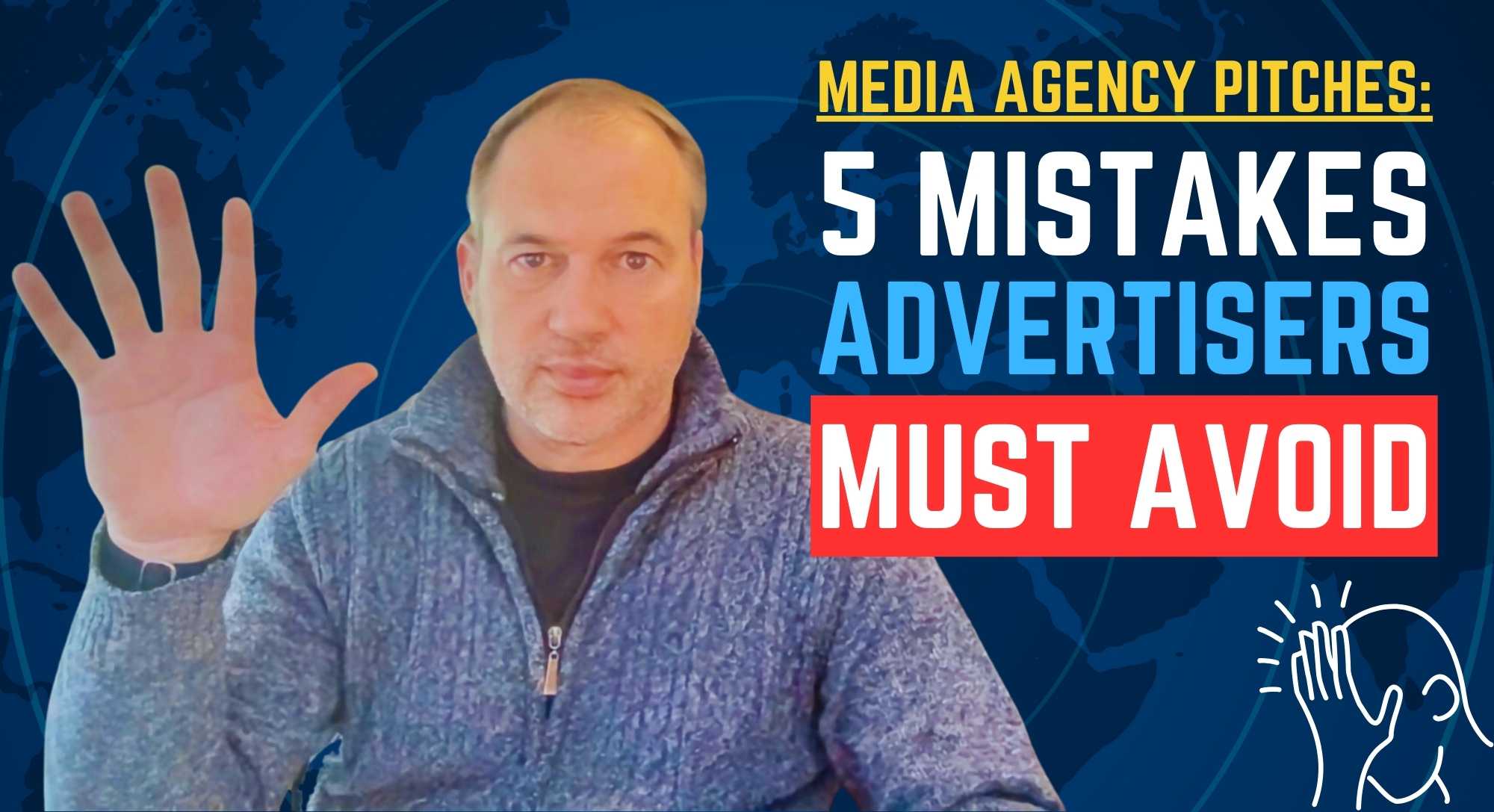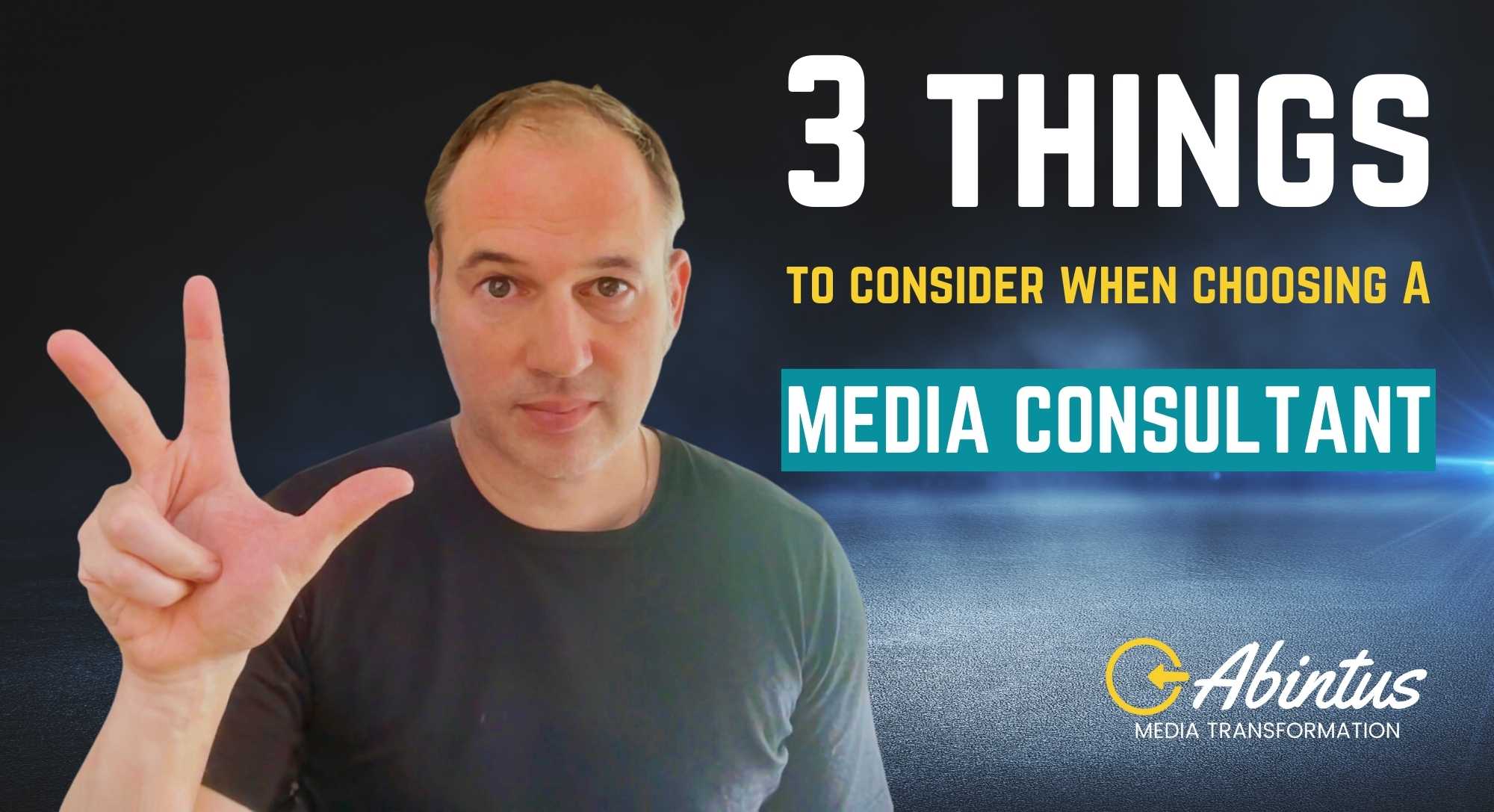Anyone who has experienced it will tell you the same thing: running a media agency pitch successfully is difficult.
Yes, the rewards on offer for your brand can be significant.
But if you’re not prepared and don’t know the landscape well, you leave yourself open to risks that could harm your business both in the short and long term.
You could lose thousands in wasted or inefficient media spend. You could receive years of bad service. Or you could leave yourself in the frustrating position of having signed a poorly constructed contract that consistently favours your agency rather than you.
If you’re running a pitch for the first time, or simply want to sharpen your game, this article will guide you through some of the most common mistakes we see – and show you how to avoid them.
Mistake 1 - Not getting everyone aligned
Like any critical business process, a media agency pitch is built on good communication and clear expectations. That’s why we recommend you make sure everyone internally is aligned on your objectives before your formal pitch process begins.
The best way to do this is by completing a thorough needs assessment. In our process for running a best-in-class media agency pitch, we recommend this step as an essential element of Phase One - The Preparation Phase. Taking the time to do this means every stakeholder is on board from the beginning and completely understands what is happening.
When we help clients to maximise their pitch process, we use a templated questionnaire for preparing the needs assessment. This helps the brand to think through and define each of its pitch requirements in detail.
By bringing your internal team together to go through the needs assessment, you are giving everyone in your business the opportunity to contribute to your goals and understand what you are looking to achieve. This avoids potential confusion and conflict later in the pitch process, when you are starting to ask your team to assess each of the competing agencies.
Mistake 2 - Muddled scoring methodologies
How can you possibly hope to arrive at a coherent and universal decision about the winner of your pitch if you don’t know how to assess any of the competing agencies?
Over the years, we have seen too many advertisers attempt to determine the winner of their pitch entirely on feelings and emotions. “This agency just felt like the right partner for us,” they’ll say. But they can’t back up that feeling with anything quantifiable that justifies their decision.
Inevitably, this often leads to disappointment when the emotions behind their decision clash with the day-to-day realities.
To avoid this, we insist on clients taking the time to ensure they have a pre-agreed scoring methodology in place. This document details how the advertiser will score and assess all participating media agencies. Crucially, the document is prepared in full before the pitch begins.
By doing this, the advertiser is guaranteeing that the decision-making process is both fair and balanced. This is significant, because it signals to market-leading agencies that you know what you are doing and makes them more likely to compete. It also builds internal confidence that you will arrive at the right winner. And, further into the process, it enables you to pinpoint areas that you need agencies to improve on.
That’s three big wins – a fair and balanced decision-making process; leading agencies being confident in your process; and your team being confident you will make a good final decision – all achieved with a single step.
Mistake 3 - Having a bad RFP
One of the main objectives of any media agency pitch is to attract the interest of your market’s leading agencies. But this aim can be torpedoed before the pitch has even begun.
If you fail to prepare a detailed and thorough Request for Proposal (RFP), the results can be catastrophic.
Best-in-class agencies do not respond to every pitch because they simply do not have the time or resources. Instead, they’ll selectively pick the very best RFPs that cross their desk. Their experience means they are quickly able to identify the RFPs that pique their interest.
A poor or partially complete RFP immediately puts off best-in-class agencies, because they have no confidence in the process. And if they have no confidence in your ability to run a pitch, they are unlikely to take part at all.
As a result, you are left to deal exclusively with second-rate agencies. Agencies that are so desperate for business (hint: good agencies are too busy to be desperate for business) that they’re prepared to deal with poor RFPs, whatever the consequences.
A poor RFP also sucks up your own internal resources. Expect a flurry of questions from competing agencies looking for missing information, and a mass of wasted hours for your team responding to each query in person.
Finally, substandard RFPs mean wasted time and money sifting through poor quality pitch responses, and then seeking further clarification from the agencies involved simply because your original RFP didn’t set out exactly what was required.
In general – it’s just a mess that should be avoided at all costs. Our recommendation? Read this instead: How To Produce A Quality RFP.
Mistake 4 - Not collecting and benchmarking agency commitments
During the course of your pitch, you’ll hear media agencies making promises about their amazing pricing, high-quality service, and deliverables. These are included in their written responses and presentations to impress you. They are offered as a tempting indication of what’s available should you choose to award your business to them.
But unless you meticulously collect those media agency commitments (or promises) and then embed them in the final contract, they don’t mean anything.
By detailing these commitments in this way, and using them as benchmarks once your business has been awarded, you enjoy three significant benefits:
-
You can make an accurate assessment of what the financial benefits would be for moving your business to a new media agency.
-
You can confidently assess whether your expectations align with each competing agency.
-
You can precisely monitor and measure future performance, which is particularly important if you have agreed a PRF scheme with both performance bonus and malus mechanisms (this is essential!)
Media agency commitments to collect and benchmark include media pricing, media quality KPIs, AVBs, service delivery, quality of deliverables, and digital media technical costs.
Mistake 5 - Awarding your business prematurely
In the excitement of your pitch process, it’s easy to get carried away. As the decision gets closer, you start to feel like there’s only one winner. Perhaps you start thinking about how this new partnership could transform your business. And before you know it, you’ve awarded your business – without having a contract signed by both parties.
But this almost certainly leads to you weakening your position and eventually agreeing a deal that is significantly less advantageous than the one you could have negotiated – if only you had just followed this simple process:
First, use your pitch process and scoring methodology to reduce the field down to two finalist agencies. Next, give feedback to both of those agencies on the areas you would like them to improve.
Once your finalists are armed with this knowledge, use the element of competition – plus a one-week deadline from pitch presentations – to leverage best-and-final offers from both agencies.
As soon as those offers are received, gather your internal team to decide your winning agency. But don’t tell the agency it has won.
Instead, finalise a contract that aligns with your winning agency. Get it signed off by your legal team and senior management. Then sign the contract and send it to the winning agency for their signature. Only when the contract is signed by both parties can you declare the pitch complete, debrief the unsuccessful agencies, and publicly announce that your business has been awarded.
Take proactive steps to avoid these mistakes
To some people, these five mistakes may seem obvious. But they are surprisingly common. And they each have the potential to deliver hugely disruptive consequences for challenger brands who are doing everything they can to squeeze every possible advantage in competitive markets.
As a world-class media agency pitch consultant, Abintus has seen the real-world impacts bad processes can have on media agency pitches. We’ve been asked to pick up the pieces and ensure the next pitch process is run significantly more successfully than the last.
Our results speak for themselves. In 2021 alone, we secured 30% savings in agency remuneration (cost per FTE), 36% reductions in media prices, and 29% increases in AVBs and cash rebates. We also worked with our clients to deliver stronger media agency contracts, stronger media agency teams, more effective performance-related fees (PRFs), and reduced digital media technical costs.
Talk to our team today to make sure your next pitch process delivers the best possible outcome.
Media Auditing Guide: Click Here
Media Agency Pitch Management Guide: Click Here
--------------------------------------------------------------------------------
Author Expertise and Experience:
Philippe Dominois is co-founder and CEO of Abintus Consulting, and Head Coach at the Abintus Academy. He has over 25 years of international media experience, having worked on the media agency side, client side, and media auditing side throughout his career. Philippe has authored hundreds of articles over the years that focus on media management best practices.

.jpg)

